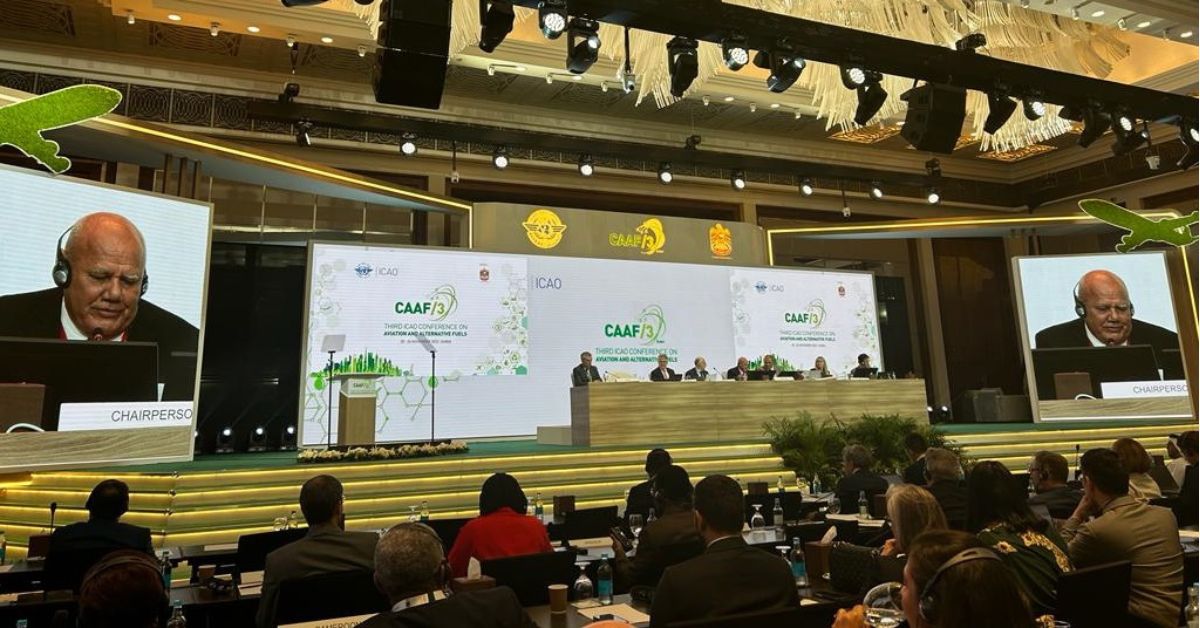DUBAI — The air transport sector urgently requires a roadmap that ensures the commitment of countries to the transition to a balanced system for producing Sustainable Aviation Fuel (SAF), said Dr. Kostas Latrou, Director-General of Hermes Air Transport Organization.
Speaking with the Emirates News Agency (WAM) at the third International Civil Aviation Organisation (ICAO) Conference on Aviation and Alternative Fuels (CAAF/3), he highlighted the conference’s significance, especially as it precedes COP28. Latrou underscored the civil aviation sector’s critical role in global efforts towards climate neutrality and sustainable development.
He commended the UAE for its leadership in aviation, noting the impressive growth of national carriers like Emirates, Etihad Airways, and Air Arabia.
Latrou praised the General Authority for Civil Aviation’s unwavering commitment to the sustainability and expansion of the sector. He acknowledged countries like the UAE for integrating sustainable visions into their future agendas, particularly post-COVID pandemic recovery, which is vital for the aviation industry.

Latrou confirmed that the global air transport sector has rebounded to pre-COVID-19 pandemic levels of 2019, with some countries already surpassing these levels. He anticipates this upward trend will persist, underscoring the sector’s robust recovery and ongoing growth trajectory.
Expressing optimism about the future of the aviation industry, Latrou said, “We are optimistic about the future, as we are now seeing a great demand for travel around the world, which is a positive sign for the sustainability and growth of the aviation industry on a global scale.”
He further explained that aviation has precise and extensive climate action plans aimed at reducing CO2 emissions, and the industry is making significant progress towards achieving its global climate goals.
The International Civil Aviation Organization (ICAO) plays a key role in this effort by providing Member States with internationally agreed-upon policies, standards, guidance, and tools. These resources are designed to mitigate the environmental impacts of CO2 emissions from international aviation, including the implementation of a “basket of measures.”
Latrou highlighted that this collective project would enable ICAO to meet the global aspirational goals of a two percent annual fuel efficiency improvement and carbon-neutral growth, emphasizing the commitment of the aviation sector to environmental sustainability.








